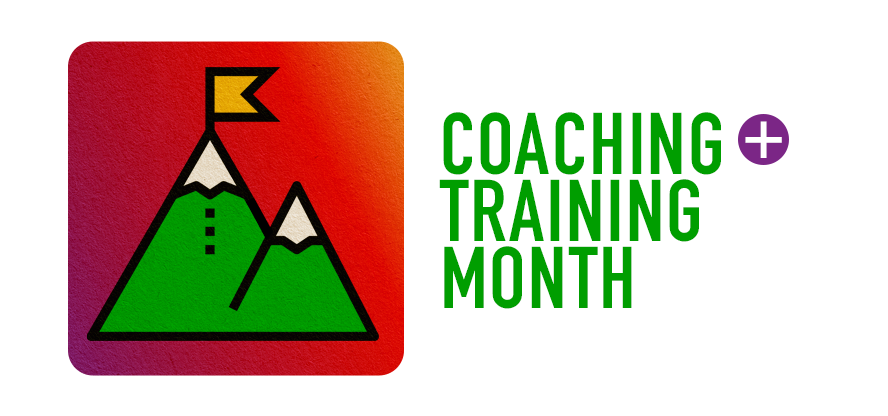 In today’s virtual, work-from-home environment, agents are seeking training and coaching in entirely new ways. In August, we’re laser-focused on what defines good coaching today and how to get the most out of it.
In today’s virtual, work-from-home environment, agents are seeking training and coaching in entirely new ways. In August, we’re laser-focused on what defines good coaching today and how to get the most out of it.
Getting to the next level in life and business requires tenacity, focus and knowledge. A great coach will push you in all of these areas and will help you move beyond your natural talents into the ream of your greatest potential. But it’s misleading to suggest that all agents will benefit from the same type of coaching. Deciding which type of coaching to pursue is an important first step for many agents.
Typically, agents take a lot of training when they’re new, fall into a routine of moderate success or failure, and then seek a coach or team or a mentor to take them to the next level or pull them from the jaws of failure.
Coaching is not a magic potion, and agents who plan to invest in coaching need to take a good look at themselves and make a well-reasoned business decision on whether coaching can benefit them before they make a significant investment of time and money.
Progress is minute by minute, but there’s only one person who will be with you every step of the way every minute in the day — and that’s you. So the question of whether to seek coach monthly, weekly or daily starts with self-evaluation.
Coaching programs vary widely in cost from several hundred dollars to thousands of dollars, and they vary in terms of time, too. Finding the right type and frequency depends on the need of the individual agent.
Coaching programs normally operate as follows. Each session, the coach holds the agent accountable to certain activities and then listens to the agent’s excuse if they don’t accomplish the tasks. Depending on the coaching style, the coach will prod and nudge the agent to admit their shortcomings. They’ll either accept or renounce the excuse. Then, they’ll give a strategy for accomplishing the task in the following week.
More aggressive coaches may berate excuses and insist upon performance. They’ll often require the agent to track and report their own numbers. Coaches are usually selected based on the desires and temperament of the agent after an interview or vetting process.
Monthly programs
These are the most common and have been widely successful for a small percentage of high performing agents. However, they often don’t work as well for agents who do not already have solid daily and weekly habits, or don’t have self-accountability skills or structured accountability systems that they’re using.
Weekly sessions
This frequency of coaching is also well-entrenched in the real estate industry. Weekly sessions can be very effective for agents who are driven, have some systems of accountability or at least the discipline to be held accountable, and have experienced some measures of success.
These programs are far less effective for brand new agents or agents who haven’t experienced any measure of success (in real estate or in other endeavors). You need to have some base foundational skills and some understanding of the road map for your individual success for weekly coaching to be most effective.
Daily coaching
Around-the-clock coaching systems are usually embedded in a brokerage or business. They are often lead by the broker or manager, and the accountability systems are integrated into the office tracking systems or a visible board in the work space. Daily coaching programs can take various forms, but usually include some amount of training or motivational presentations.
The quality and consistency of these programs can vary widely. The culture of a daily program is often impacted by the relationships within the brokerage or between the agents. Daily coaching programs are also often limited to agents who belong to a particular brokerage, making them inaccessible for the larger population of agents in the industry.
Fortunately, technology provides an excellent platform for daily coaching that can be widely available to the greater real estate agent and professional population.
Virtual group coaching
An example of this is MPower Live, which began as a brokerage staple and is now an open-platform coaching program. Geared toward real estate professionals, the program includes a market update, a skill-sharpening commentary and an open-mic script practice, which allows participants to revisit common objections they’re encountering in the marketplace.
What I also like about the program is that there are small accountability and script practice groups that meet daily before the live session, which helps participating agents kick start their day and keep their prospecting in line.
Whether you are a new agent, an agent seeking to up your game or a top producer, coaching will likely be a necessary component to your business progression.
You can opt for daily, weekly or monthly coaching sessions, or you could choose a group or one-on-one format. Either way, coaching requires time and money to work. So, look before you leap and consider what type of coaching program will work best for you at this time in your career.
Teresa Mack is the co-founder and manager of Pacific Playa Realty. She is a top producing agent and has benefitted from a wide variety of coaching experiences. Teresa regularly trains agents in Los Angeles on business development, prospecting and real estate transactions.









